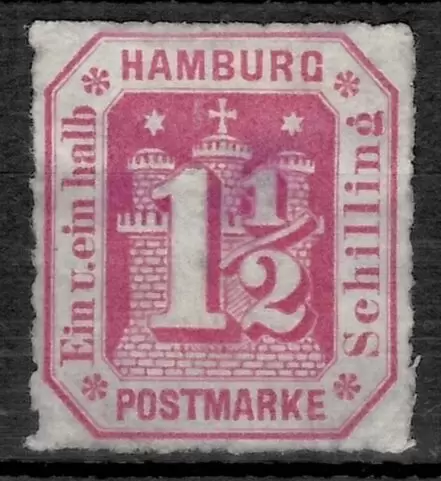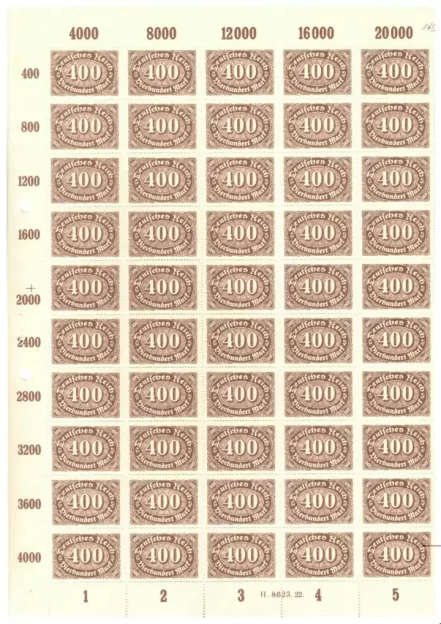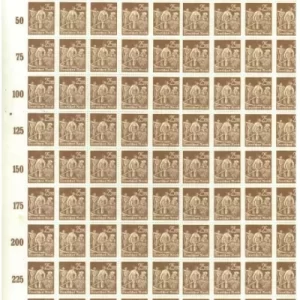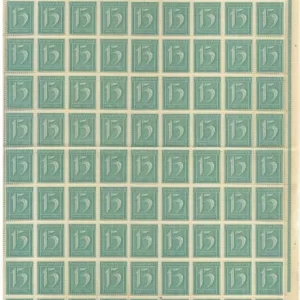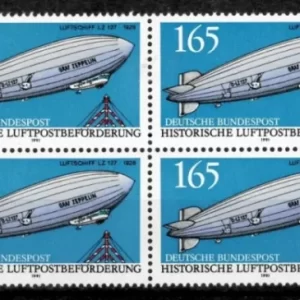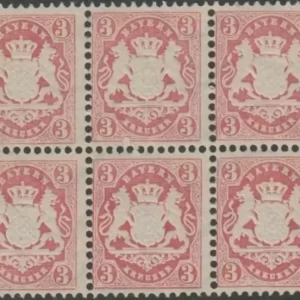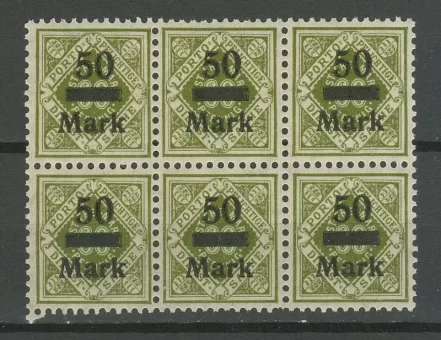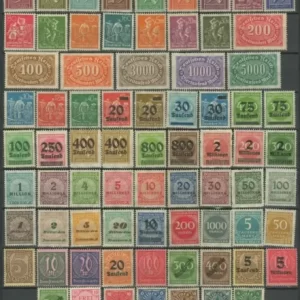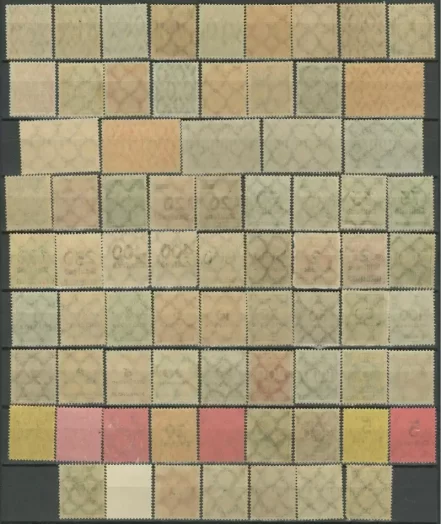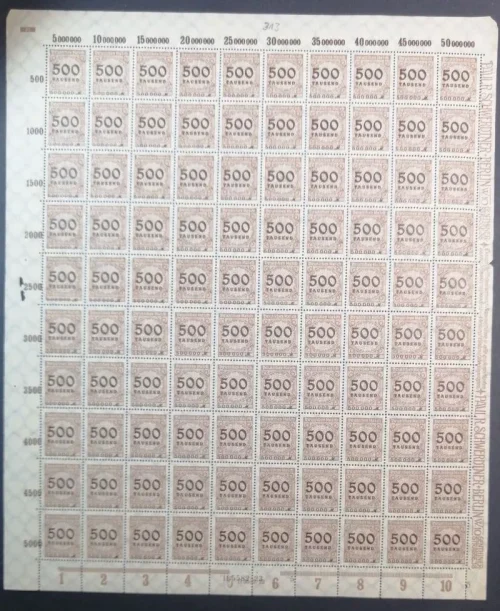German States Hamburg stamp year 1866 1½ Schilling
From 1859 to 1867, Hamburg, as a free city-state in the German Confederation, issued its own stamps. These stamps are a fascinating area of philately and are notable for their distinct designs and historical importance. Here’s a breakdown of Hamburg’s stamps during this period:
1. First Issues (1859)
- Date of Issue: November 1, 1859.
- Design:
- Featured the Hamburg coat of arms, a castle or fortress design, symbolizing the city-state.
- Inscription: “Freie Stadt Hamburg” (Free City of Hamburg).
- Imperforate design with no perforation lines.
- Denominations:
- ½ schilling, 1 schilling, 2 schilling, 3 schilling, 4 schilling, and 7 schilling.
- Denominations reflect the pre-decimal currency used in Hamburg at the time.
- Color Variants: Each denomination was printed in a distinct color to differentiate them.
2. Later Issues (1864–1867)
- Perforated Stamps Introduced:
- Perforated versions of the original stamps began appearing, though imperforate stamps were still in use.
- Surcharged Stamps:
- Some earlier stamps were overprinted with new denominations to meet postal rate changes.
- Revenue Stamps:
- During this period, Hamburg also issued combined postage and revenue stamps.
Key Features of Hamburg Stamps
- Distinct Design: The fortress/castle emblem was consistently used, emphasizing the city-state’s identity.
- Currency: Denominations in schillings, with rates corresponding to Hamburg’s postal tariffs.
- Printing Quality:
- Printed using letterpress techniques, resulting in some minor variations between print runs.
- Look for differences in paper quality and color, which can affect value.
Cessation of Hamburg Stamps
- Transition to the North German Confederation:
- In 1867, Hamburg joined the North German Confederation, which unified the postal systems of its member states.
- Hamburg stamps were gradually phased out and replaced by the Confederation’s stamps.

